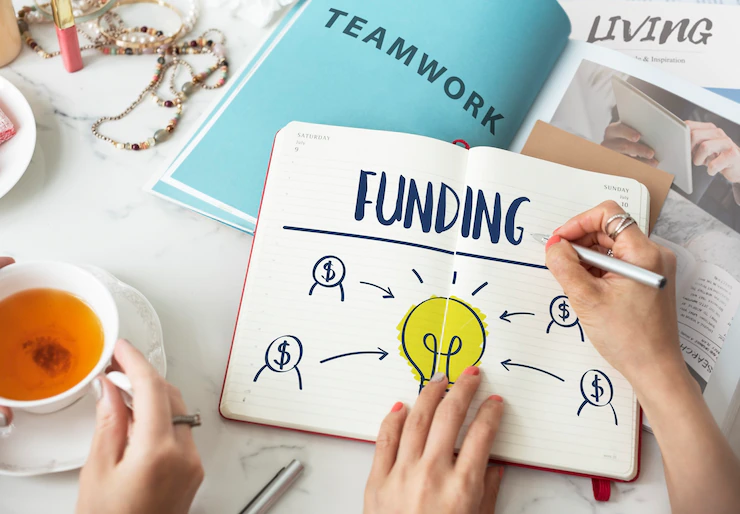
Firstly we should know what is the proposal.
A proposal is the plan of research and a researcher’s guide for executing the research. The purpose of writing a proposal is to get approval for conducting a research project and make it credible. So it is necessary for the researcher to provide the authorities and those who finance the project with a proposal
How to Write a Proposal
Writing a good proposal is a critical skill in many occupations, from school to business management to geology. The goal of a proposal is to gain support for your plan by informing the appropriate people. Your ideas or suggestions are more likely to be approved if you can communicate them in a clear, concise, and engaging manner. Knowing how to write a persuasive, captivating proposal is essential for success in many fields. There are several types of proposals, such as science proposals and book proposals, but each follows the same basic guidelines.

Planning Your Proposal
1. Define your audience
2. Define your issue
3. Define your solution
4. Keep elements of style in mind
5. Make an outline
Writing Your Own Proposal
1. Start with a firm introduction
2. State the problem
3. Propose solutions
4. Include a schedule and budget
5. Wrap up with a conclusion
6. Edit your work
7. Proofread your work
Characteristics of an Effective Research Proposal

- Aims to advance science, serve humanity, society, or the environment
- Has focused and measurable goals
- Its results can be generalized
- Uses accurate, well-developed, and appropriate methods to achieve research goals
- Predicts potential problems that may arise during research and provides solutions for them
- Is performed by researchers who have enough experience, training, and knowledge
- Is conducted in an environment with a high probability of success
- Complies with ethical standards
- Has a leading researcher who is independent and capable of leading other authors
What to Do Before Writing a Proposal
Signing up for grants in each field of research has different requirements. But they also have something in common regardless of their research area. So it’s best to keep in mind a few key points.
A. Learn As Much As Possible About the Fund Provider
Even if you have written a great proposal, your application will be rejected if you do not know about the needs of the institution in question and how to meet them. Members of the Grant Committee consider the link between the research and the purpose of the institution. So you need to clarify in your proposal how your research will help that institution. In fact, look at the institution as your partner and look for common goals and concerns. If you are not aware of the goals of that institution, try to know them by visiting their website or even calling them. This way you can make sure that your proposal is linked to that institution. Besides, they will not reject your proposal because of its irrelevance to their scope.
B. Identify the Target Audience
Proposals are usually studied by scholars and researchers from other disciplines. So don’t use idioms and abbreviations. The best thing to do is to find information about the reviewers. These details are usually available on the institute’s website. This will help you determine what details to include in your proposal.
C. Follow the Sponsor’s Guidelines for Writing the Proposal
By doing this you can make sure that you do not remove the important stuff. Make a list of everything you need to consider, such as the researcher’s resume, budgeting, or endorsement by committee members. Then, thoroughly read the full details of page formatting and the like. Institutions reject proposals that do not follow these formats without even reviewing them. Also, if there are grammatical or spelling errors, the committee members will think that the researcher is careless. Thus, they will assume that the applicant has done the same thing when conducting the research.
Components of a Proposal
. Title
. Significance of the Study
. Statement of the Problem
. Research Questions
. Research Hypotheses
. Literature Review
. Statistical Population
. Sample Size
. Data Analysis
. Description of Theoretical Frameworks of Research
. Budget and Services
. Works Cited
What do reviewers look for in a grant proposal?

It would be impossible to carry out research without a solid source of funding. A large portion of research funding is in the form of grants. But the world of research grants is very competitive. In 2021, the success rate of research proposals competing for National Institutes of Health (NIH) grants was only 20%. Securing research grants requires more than just a breakthrough idea. You also need an eye-catching, structured, and persuasive application. One of the main reasons for the rejection of proposals is that they are poorly written.
The review process of a grant proposal
Are you familiar with the research grant review process? Every grant program has a defined process for reviewing submitted applications. A committee of experts specially selected for the purpose reviews each submitted application objectively and after careful deliberation chooses the winning proposal.
Reviewers may have to review multiple grant proposals in a day. This gives them limited time to evaluate individual proposals. Therefore, it is important to present a proposal that conveys research ideas in an easy, concise, and informative manner. In simple terms, the proposal should stand out!
Key points for writing a winning grant proposal

What are the characteristics of a good grant proposal? In the rest of this DoNotEdit article, we will mention some aspects that you should focus on and emphasize when writing your grant proposal.
First impressions
Write a concise and interesting abstract. To encourage grant proposal reviewers to read your proposal, your abstract needs to clearly reflect the study’s objectives and potential outcomes to make a good impression.
Structure
Have a clear framework. Your proposal should provide concise and relevant information spread across different sections. Grant applications usually have a set format and guidelines that must be followed in the same applications. If there is no specific format, be sure to include specific objectives, proposed methodology, potential outcomes, budget, and timeline in the proposal. Some grants may require additional information about the proposed team, background data, and previous research experiences of the members involved.
Practicality
Is your study goal achievable? Proposals that are too far-fetched seem impractical and are rejected. Project goals, outcomes, budgets, and timelines should be reasonable and realistic. Keep your goals achievable, measurable, and, if possible, aligned with funders’ interests. Propose a realistic and reasonable budget and timeline. Reading about recently funded projects can help you with this.
Language
Mind that language. Writing a clear and concise grant proposal is critical. Avoid technical jargon, spelling and grammatical errors, and plagiarism. While it’s fine to reuse some information from your previous proposals, it is always better to write proposals afresh. Additionally, try using keywords from the goals/missions section of your grant. Finally, proofread your application several times and try to get a native speaker to proofread your work.
Formatting
Style determines the issue. Formatting is often underappreciated and ignored by grant applicants. Add section headings, line spacing, and wider margins to make the proposal easier to read.
Visuals
A picture is worth a thousand words. Images and graphics can make your proposal stand out. Use them as much as possible. For example, the project timeline and methodology can both be presented graphically.
Limitations and solutions
It is good to know the limitations. Mentioning the potential limitations of the project may seem counterintuitive. But adding this item to the proposal and presenting possible alternatives will show your foresight regarding challenges during project implementation and your ability to resolve them.
Follow guidelines
It is a good idea to check and recheck your grant proposal to make sure you have followed all the guidelines. This will help you not to be rejected for not following the technical points and to have followed all the technical points.
If the grant proposal writes well, it can get the necessary research funding. Creating a good proposal requires planning, effort, enough time, and patience. With DoNotEdit Services you can now make sure your grant proposal writing is in the best way possible to stand out from millions of articles.
Some principles to writing a strong research proposal
Which institution do you prepare the proposal for? Considering this issue is highly important. Typically, for MSc and Ph.D. dissertations, there is a specific format for proposals. Before taking any action, get a university-approved template to prepare the proposal based on it.

Consider the proper budget and time to write your proposal. In some cases, a lot of funding is needed. In other words, proposals can be considered by an organization that will provide benefits to the individual.
Having a good idea is the first step in drafting the proposal, but it should be noted that converting the idea into a proposal is very difficult.
In some cases, instead of the proposal, it is advisable to prepare the draft of your project, a simple proposal that is used for classroom research and is in fact a one-page proposal. This single-page proposal can be considered as the original proposal that does not need much time or budget, but it is also used for initial confirmation and presentation to the supervisor.
Valuable research has novelty or a new word to say. This aspect is considered one of the evaluation criteria of applied research in theses.
The novelty of the research is evaluated based on several criteria:
- Subject area: The subject or title of the research should be new, introduce a new model or theory, and contribute to improving a condition or solution to a problem.
- Research setting: The subject of the research should be investigated in a new setting.
- Research time: The research topic should be investigated in a new timeframe.
Note: The way of recognizing the research novelty is to review the related literature to check if something new has been presented or not.

1 thought on “What is the aspect of novelty and innovation in a proposal or article?”